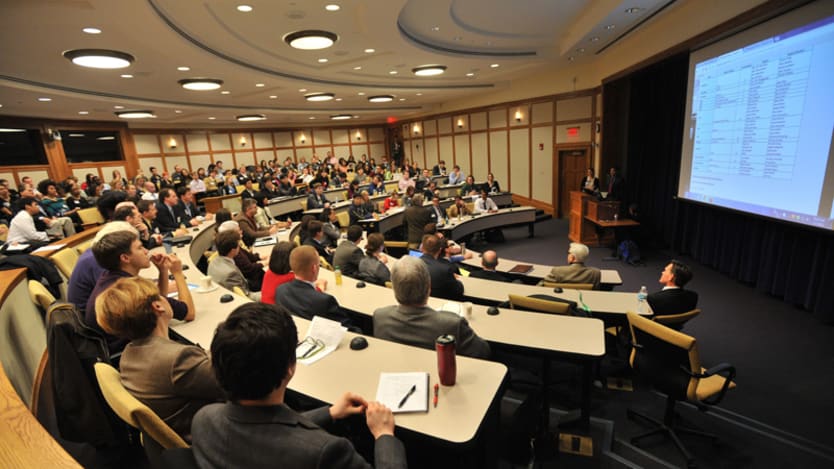
The value of a master of public policy program for the public service sector is well-known. However, its value for graduates choosing a private sector career is often missed or understated. An MPP program is an equally valuable asset for students who plan to pursue a private sector career in global development.
The 2014 Harvard Kennedy School Employment Overview report indicates that over the past 10 years, the breakdown of employment sectors among MPP graduates has remained fairly consistent — two-thirds take on positions in the public or nonprofit sectors immediately following graduation while the rest work in the private sector. Strategy consulting firms are among the top choices for MPP graduates pursuing work in the private sector, including those working in global development.
When 1 in 3 MPP program graduates choose a career in the private sector, “What exactly can a private sector professional gain from an MPP program?” is a legitimate question to consider.
Success in one’s career is based on their performance on the job. A degree and school brand recognition may help you get the job, but your success and career advancement depends on your performance. After studying top performers across industries for over 30 years, Gallup, a leading management consulting firm with clientele across both private and public sectors, sets the predictors for great performance as talent, knowledge and skills. Talent in this context is defined as your naturally recurring patterns of thought, feelings or behaviors. Knowledge consists of the facts and lessons learned and skills are the steps of an activity. Top MPP programs are designed to enhance students’ capacity in all three areas by providing the following experiences.
1. “Stretch” projects of an MPP can push you to discover and refine your talents.
More on choosing a graduate degree:
► 12 graduate degree programs to further your global development career
► Why global development professionals, recruiters are on the MBA bandwagon
► Why a master's in international development is still a popular degree choice
Students often focus on the knowledge and skills in an academic program, but miss the talent self-discovery experience which can be equally important for one’s success. Talent is developed when you intentionally practice and reflect on its application on a regular basis. Effectively communicating your ideas and winning the support of a classroom comprised of over 50 nationalities is not in everyone’s comfort zone — but that is a daily experience in an international MPP program.
To stand out in a room full of strong personalities, identify who you are, and represent your own voice is key. Beyond the everyday classroom experience, the program can also provide proven, useful psychometric tools and leadership training to guide the self-reflection and learning experience. By the end of an MPP program, you can expect to better know yourself and your strengths, and how you can use these strengths to make a difference.
2. Students acquire knowledge through coursework and real-life experience at an MPP program.
Similar to an MBA program, the MPP program prides itself on a diversity of learning modules across multiple disciplines. Unlike the MBA program, however, the MPP program trains students to analyze cases from a governmental and societal perspective, instead of a corporate perspective. From economics to urban development, organizational behaviors to health policy, all facets of a public management system are taught. When working in the private sector, especially in strategy consulting firms, it is invaluable to have the ability to look beyond the corporate entity and analyze the macro environment along with social forces. Businesses hire consulting firms seeking an external perspective backed by industrial, political, and economic data and experience.
In addition to coursework, knowledge of different cultures and organizations is gained by networking with your fellow MPP classmates. For example, the inside perspective of Myanmar’s political landscape from a former political activist in Myanmar is not learned from books but through conversation and relationship. To experience a grand Indian wedding in person is a great way to be introduced to the very colorful and unique Indian culture. The rich personal experience one can gain from a diverse MPP network is phenomenal. Should MPP graduates choose to work in a global development company, the early exposure to different cultures prepares them with culture sensitivity and open mindedness.
3. Teamwork and leadership skills are used every day in MPP program.
Virtually all projects for a MPP program are designed to be group-based. In the private global development sector, work is often project-based, especially in consulting firms. When working in groups, the ability to organize resources, create a team culture and engage each team member is a constant challenge. In my own experience, the group work experience in the MPP was much harder than group projects in the private sector. There is less common ground in expectations and interests among a group of four to five students who all come from different cultural norms and professional training. The daily experience of juggling different projects and progressing conversations with team members in an MPP program well prepares students to navigate the private sector contexts of ongoing teamwork and cross-cultural exchange.
When students make a choice to enroll in an MPP program, most plan a public service career. However, should the time come that they prefer to take the path of a private sector career or work at the intersection of the two in public-private partnerships, the education gained in an MPP is still invaluable.
You know you need a postgraduate degree to advance in a global development career, but deciding on a program, degree and specialization can be overwhelming. In partnership with the Association of Professional Schools of International Affairs, Duke Center for International Development, American University Kogod School of Business, Lee Kuan Yew School of Public Policy, National University of Singapore and the MPA/ID Program at the Harvard Kennedy School, we are digging into all things graduate school and global development in a weeklong series called Grad School Week. Join online events and read more advice on pursuing a postgraduate education here.
Search for articles
Most Read
- 1
- 2
- 3
- 4
- 5








